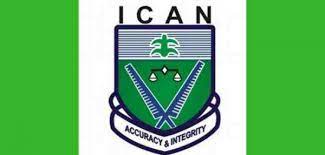The Institute of Chartered Accountants of Nigeria (ICAN) has launched a revised professional examination syllabus aimed at strengthening Nigeria’s fiscal reform agenda and enhancing accountability in public sector financial management.
Unveiled recently in Lagos, the updated syllabus aligns closely with the ICAN Accountability Index, a tool used to evaluate transparency in the country’s financial governance. The syllabus will take effect starting November 2025.
Speaking at the event, Chairman of the Syllabus Review Committee, Chibuzor Anyanechi, emphasized that the revision enhances core competencies in accountability, fiscal responsibility, and sustainability. He said the curriculum now embeds key provisions of the Finance Acts from 2020 to 2023 and anticipates upcoming tax reforms.
“This alignment is vital, especially in Nigeria, where public financial accountability is still a major concern,” Anyanechi stated.
He added that the new structure includes modules on Artificial Intelligence, Sustainability Reporting, and Responsible Finance, preparing ICAN candidates to adapt to complex and evolving regulatory environments.
A standout feature is the integration of technology and digital skills, including content on the Internet of Things (IoT) and frontier technologies, which the institute says will ensure accountants are “globally agile” in a fast-changing digital economy.
To keep pace with rapid global changes, ICAN will now review its syllabus every three years instead of the previous five-year cycle.
Another notable change is the introduction of a new waiver framework. Candidates may now be exempted from previously failed subjects if they later acquire relevant qualifications that demonstrate competency. According to Anyanechi, “It’s a recognition that learning is not always linear.”
In his remarks, ICAN’s 60th President, Davidson Alaribe, said the reforms are crucial for maintaining the global competitiveness of Nigerian accounting professionals.
“Even native doctors go for further training,” Alaribe noted humorously. “Our students must stay ahead of trends in business and taxation. We are already embedding expected tax reforms, and once the bill is passed, we’ll examine those modules within six months.”
The syllabus maintains the 15-subject structure but includes renamed subjects and enriched content. Pilot questions and mock exams will be released to guide students ahead of the rollout.
ICAN confirmed that the syllabus review was carried out in collaboration with key stakeholders, including the International Federation of Accountants, Financial Reporting Council of Nigeria, Securities and Exchange Commission, and leading professional services firms.








I’m gone to convey my little brother, that he should also pay a quick visit this blog on regular basis to obtain updated from
most recent news update.
Here is my homepage :: ultimateshop vc
Appreciate this comprehensive look at arbitrage approaches!
I have employed arbing several occasions – mainly on parlays where several legs
have hit and I want trying to lock in a payout.
The numerical explanation of when hedging is profitable was very helpful.
Look into my website: aviator games
excellent put up, very informative. I wonder why the other specialists
of this sector do not understand this. You should continue your writing.
I am confident, you have a huge readers’ base already!
Feel free to surf to my homepage castrocvv login